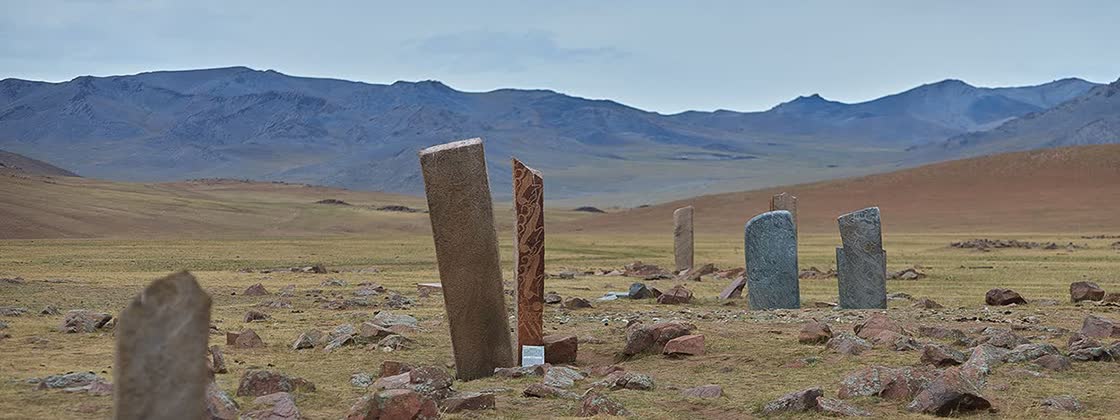The Uushig Deer Stone Monument
ABOUT UUSHIG DEER STONE MONUMENT
The Uushig Deer Stone Monument is an ancient archaeological site located in the Khovd Province of western Mongolia. Here's some information about the Uushig Deer Stone Monument:

GOOD TO KNOW
- Deer Stone Monuments: Deer Stone Monuments are unique megalithic structures found across the Eurasian Steppe, including Mongolia. They are characterized by large stone pillars carved with intricate and stylized depictions of deer, as well as other animal and human figures. The purpose and meaning of these monuments are still the subject of research and speculation.
- Uushig Deer Stone Monument: The Uushig Deer Stone Monument is one of the most notable and well-preserved examples of Deer Stone Monuments in Mongolia. It consists of a collection of large stone pillars, ranging in height from about 1 to 5 meters (3 to 16 feet). The pillars are adorned with intricate carvings, predominantly depicting deer and other animal figures.
- Cultural Significance: The Uushig Deer Stone Monument is believed to date back to the Bronze Age, approximately 3,000 to 4,000 years ago. These monuments hold cultural and historical significance as they provide insights into the ancient nomadic cultures that once inhabited the region. They are considered sacred and are associated with rituals and beliefs related to hunting, shamanism, and reverence for nature.
- Carvings and Symbolism: The carvings on the Uushig Deer Stone Monument depict various animal figures, including deer, ibex, horses, camels, and wolves. Human figures, weapons, and abstract symbols are also present. The intricate carvings reflect the artistic and spiritual practices of the ancient nomadic cultures and convey symbolic meanings that are still not fully understood.
- Preservation and Research: The Uushig Deer Stone Monument and other Deer Stone sites in Mongolia have been the focus of archaeological research and preservation efforts. Scholars and scientists study these monuments to gain insights into the ancient culture, symbolism, and rituals of the Eurasian Steppe peoples.
- Tourism and Accessibility: The Uushig Deer Stone Monument has gained recognition as a significant archaeological site and attracts tourists interested in ancient history and cultural heritage. However, it is worth noting that some Deer Stone Monuments are located in remote areas, requiring travel arrangements and often the assistance of local guides to visit.
Visiting the Uushig Deer Stone Monument offers an opportunity to witness the artistic and cultural legacy of ancient nomadic civilizations in Mongolia. It allows you to appreciate the intricate carvings, ponder the symbolism, and immerse yourself in the historical mysteries of the region.